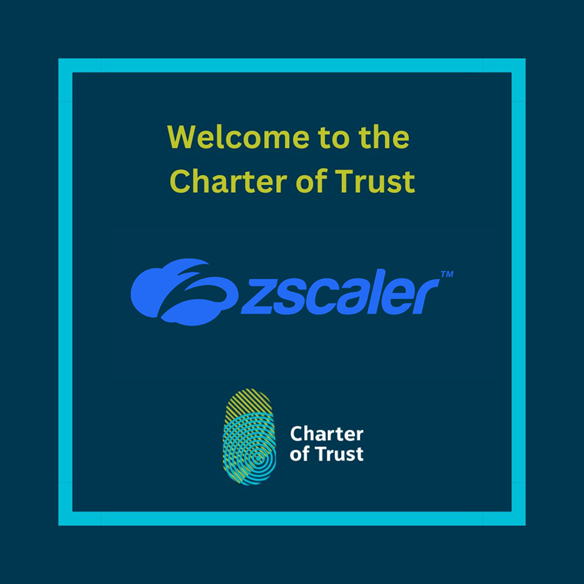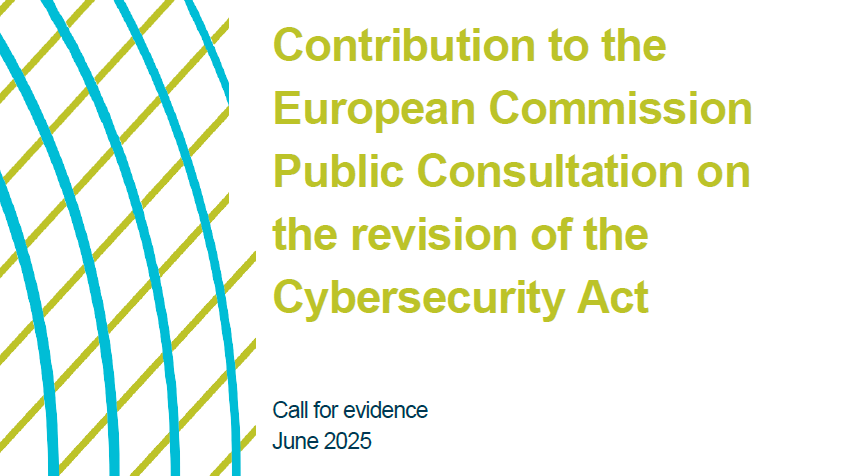The ethical development of AI components and systems is essential. Read how NXP, a Partner of the Charter of Trust, has built its comprehensive framework for AI ethics principles that are rooted in its corporate values, ethical guidelines, and a long tradition of building some of the world's most sophisticated secure devices.
Excerpt from NXP’s whitepaper “The Morals of Algorithms – A Contribution to the Ethics of AI Systems”
It’s hard to deny that artificial intelligence has come so far so fast. It’s working its way into our lives in ways that seem so natural that we find ourselves taking it for granted almost immediately. It’s helping us get around town, keeping us fit and always inventing new ways to help around the house. The ever-increasing availability of affordable sensors and computing elements will only accelerate this trend. Thinking of what’s next, which was once the domain of science fiction writers, is now our day-to-day reality.
AI applications will be designed for the greater good, but there will be outlying cases. The increase in autonomous applications that carry with them the potential to put humans in danger drives home the need for a universal code of conduct for AI development. A few years ago this would have sounded preposterous, but things are changing fast.
The industry, together with governments of several of the world’s leading nations, are already developing policies that would govern AI, even going so far as discussing a “code of conduct” for AI that focuses on safety and privacy. But how does one make AI ethical? First, you have to define what is ethical and the definition isn’t as cut and dry as we may hope. Without even considering the vast cultural and societal differences that could impact any such code, in practical terms, AI devices require complicated frameworks in order to carry out their decision-making processes.
The integrity of an AI system is just as important as the ethical programming because once a set of underlying principles is decided on, we need to be sure they’re not compromised. Machine learning can be utilized to monitor data streams to detect anomalies, but it can also be used by hackers to further enhance the effectiveness of their cyberattacks. AI systems also have to process input data without compromising privacy. Encrypting all communications will maintain confidentiality of data, and Edge AI systems are starting to use some of the most advanced cryptography techniques available.
Perhaps the biggest challenge is that the AI ecosystem is made up of contributions from various creators. Accountability and levels of trust between these contributors are not uniformly shared, and any breach could have far reaching implications if systematic vulnerabilities are exploited. Therefore, it’s the responsibility of the entire industry to work towards interoperable and assessable security.
Agreement on a universal code of ethics will be difficult and some basic provisions need to be resolved around safety and security. In the meantime, certification of silicon, connectivity and transactions should be a focus for stakeholders as we collaborate to build trustworthy AI systems of the future.
NXP, a partner in Charter of Trust, believes that upholding ethical AI principles, including non-maleficence, human autonomy, explicability, continued attention and vigilance, privacy and security by design is important. You can read NXP’s whitepaper “The Morals of Algorithms – A Contribution to the Ethics of AI Systems” here.


You may also like

Charter of Trust Welcomes Zscaler
Zscaler is a leading cloud enterprise security provider helping global businesses accelerate their digital transformation by becoming more agile, efficient, resilient, and secure.
With Zscaler as a partner in the Charter of Trust, we aim to strengthen global cyber resilience through trust – by fostering actionable collaboration between industry leaders, governments, and public-private platforms. Zscaler brings robust expertise and innovation to the table, making it the ideal partner to drive this mission forward.
“Zscaler is excited to drive meaningful change alongside our new partners, laying a foundation of trust essential for successful digital transformation,” said Sam Curry, Zscaler CISO. “In today’s world, the need for reducing inherent trust and default access has never been greater. To truly stay ahead of ever-evolving threats, we must unite as a coalition of practitioners. Cyber attackers aren’t taking breaks, and with advancements like artificial intelligence, quantum cryptography, and emerging technologies on the horizon, collaboration is the key to securing the future.”
“We are proud to welcome Zscaler to the Charter of Trust. Their focus on cybersecurity innovation and commitment to openness reflect our shared ambition to create a safer, more resilient digital future. Together, we’ll strengthen trust, transparency, and security across the global digital landscape.” highlighted Dr. Summit Chada, Charter of Trust Co-Chair and COO Group Security & Business Lines CISO at Atos.
“With Zscaler as a Partner of the Charter of Trust, we believe that we can strengthen the global commitment to secure digital transformation by combining technological innovation with the Charter of Trust’s collaborative approach to cybersecurity leadership.” Ralf Schneider, Charter of Trust Co-Chair and Senior Fellow and Head of Cybersecurity and NextGenIT Think Tank at Allianz SE, welcomes Zscaler to the Charter of Trust.
We are excited to join forces and work together to advance digital trust and security across industries.

Contribution to the EU Commission Public Consultation on the revision of the Cybersecurity Act
We support Policy Option 2, which focuses on targeted regulatory measures that address key challenges without creating unnecessary complexity. In this context, we emphasize the need to enhance the role and resources of ENISA, to ensure effective implementation of both current legislation and the European Cybersecurity Certification Framework (ECCF).
Our recommendations aim to improve transparency, collaboration, and efficiency across the EU’s cybersecurity landscape. These include:
- Introducing clear timelines for the development of certification schemes.
- Enhancing stakeholder engagement throughout the process.
- Establishing more structured communication channels between ENISA, the Stakeholder Cybersecurity Certification Group (SCCG), and sectoral ISACs (Information Sharing and Analysis Centers).
We call for a stronger ECCF, one that is transparent, inclusive, and aligned with international standards to foster global interoperability and ease compliance for organizations across borders. Equally critical is the harmonization of certification practices across EU member states and the mutual recognition of certifications to minimize regulatory fragmentation.
The Charter of Trust advocates for technically robust, standards-based certification schemes, with well-defined roles and responsibilities. We also stress the need for clarity on the interplay between voluntary and mandatory certifications, particularly in relation to the upcoming Cyber Resilience Act (CRA).
To streamline compliance and reduce administrative burden, we propose a unified, risk-based incident reporting regime that consolidates requirements under regulations such as NIS2, CRA, GDPR, and DORA. This would not only simplify reporting for organizations but also enhance the EU’s overall cyber resilience. In addition, we recommend incorporating liability protections and grace periods for incident disclosure.
Finally, we urge the Commission to strengthen supply chain security by adopting a risk-based classification approach and establishing baseline cybersecurity requirements for ICT suppliers.
The Charter of Trust remains fully committed to supporting the European Commission in shaping a secure, resilient, and trusted digital future for Europe. We look forward to continued collaboration in building a cybersecurity framework that meets the needs of all stakeholders, today and in the years to come.




